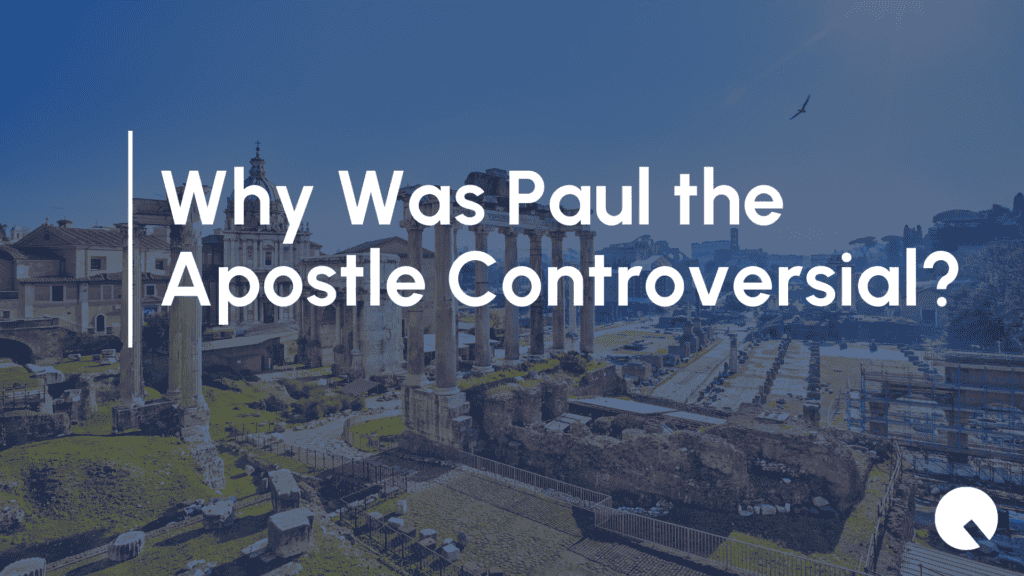Paul the Apostle, known for his prolific writings and extensive missionary work, is one of the most influential figures in Christian history. However, his teachings have sparked controversy from the time he began his ministry to the present day. His views on theology, gender roles, marriage, and social norms often clashed with prevailing cultural and religious standards, making him a polarizing figure. Understanding why Paul was controversial requires us to examine his teachings and the context in which he lived and preached.
The Context of Paul’s Ministry
Paul’s ministry occured in a complex social and political environment. As a Roman citizen and a Jewish Pharisee, Paul was deeply rooted in Jewish tradition but well-versed in Greco-Roman culture. His mission was to spread the gospel of Jesus Christ, not just to Jews but also to Gentiles (non-Jews), which immediately set him apart from other early Christian leaders. While central to his ministry, this inclusivity became one of the primary reasons he faced opposition.
Paul’s teachings often challenged the status quo within Judaism and the Roman world. His insistence that faith in Christ superseded the Jewish law was controversial among Jews, while his promotion of Christian values often conflicted with Roman societal norms. Paul’s influence was widespread as the Apostle to the Gentiles, but his message was not always well-received.
Controversial Topics in Paul’s Teachings
1. Theology and the Law
One of Paul’s most controversial theological positions was his belief that salvation came through faith in Jesus Christ, not adherence to Jewish law. In letters like Romans and Galatians, Paul argued that Christ’s death and resurrection fulfilled the law, making it unnecessary for Gentiles to follow Jewish customs like circumcision. This stance angered many Jewish leaders, who believed that Paul was undermining the very foundation of their faith.
Paul’s theology created a rift between Jewish Christians, who continued to observe the law, and Gentile Christians, who were not bound by those same traditions. His message was revolutionary: it opened the doors of Christianity to a broader audience but alienated many within his own religious community.
2. Gender Roles and Marriage
Paul’s views on gender roles and marriage have also been controversial, particularly in modern times. In letters like 1 Corinthians and Ephesians, Paul laid out his beliefs about the roles of men and women in marriage and the church. Passages like 1 Corinthians 14:34-35, where Paul instructs women to remain silent in churches, have been interpreted as reinforcing patriarchal norms and have sparked debate over gender equality within Christianity.
However, it’s important to note that Paul also emphasized mutual love and respect in marriage, as seen in Ephesians 5:25, where he instructed husbands to love their wives “as Christ loved the church.” While some of Paul’s teachings on gender have been considered regressive, others can be seen as progressive for his time, urging men to treat their wives with a care and respect uncommon in ancient cultures.
3. Sexual Morality
Paul’s teachings on sexual morality were another area of controversy, both in his own time and today. In 1 Corinthians 7, Paul discussed the importance of celibacy and self-control, promoting abstinence outside of marriage and urging believers to remain focused on their spiritual lives. His views on sex were often seen as restrictive, especially in contrast to the more permissive attitudes of Roman society, where extramarital affairs and other sexual practices were common.
Paul’s emphasis on sexual purity, coupled with his belief that marriage was a last resort for those unable to control their desires, has led to debates about whether his teachings promoted an unhealthy view of sexuality. However, his advice on marriage and celibacy was likely a response to the unique pressures faced by early Christians, who were navigating a world hostile to their beliefs.
4. Inclusivity and Division
Perhaps one of the most enduring controversies surrounding Paul is the tension between his message of inclusivity and the divisions it created. Paul’s mission to include Gentiles in the Christian faith without requiring them to follow Jewish law was groundbreaking. However, it also led to significant conflict within the early church. Jewish Christians, particularly those in Jerusalem, often viewed Paul with suspicion, seeing him as a threat to their traditions and identity.
Paul’s letters, such as Galatians, reveal the deep divisions within the early Christian community. He often defended his apostleship and authority against detractors who questioned his teachings and methods. The fact that Paul frequently found himself at odds with other early Christian leaders, such as Peter and James, underscores the controversial nature of his ministry.
Paul’s Impact and Misconceptions
Despite the controversies surrounding Paul’s life and teachings, his impact on Christianity cannot be overstated. His letters, which fill a significant portion of the New Testament, have shaped Christian theology for centuries. However, many misconceptions about Paul persist—for example, some view Paul as anti-woman or overly harsh in his views on marriage and sex. However, a closer reading of his letters reveals a more nuanced approach, where Paul often sought to address specific issues facing the early Christian communities he ministered to.
Moreover, Paul’s emphasis on faith, grace, and the transformative power of Christ’s love remains central to Christian belief. While his teachings have sparked debate, they have also inspired countless believers throughout history.
Conclusion
Paul the Apostle was a man of deep conviction whose teachings challenged the religious and cultural norms of his day. His views on theology, gender roles, marriage, and morality made him a polarizing figure both in his era and today. However, understanding the context in which Paul preached and wrote can help modern readers appreciate the complexity of his message. For a deeper dive into Paul’s life and the controversies surrounding him, watch Nobody Liked Paul seasons 1 and 2, where you’ll discover the man behind the controversy and the enduring legacy of his ministry.
Paul’s life and teachings continue to provoke thought and debate. Still they also offer valuable insights into the challenges and triumphs of spreading the gospel in a world that wasn’t always ready to listen.








